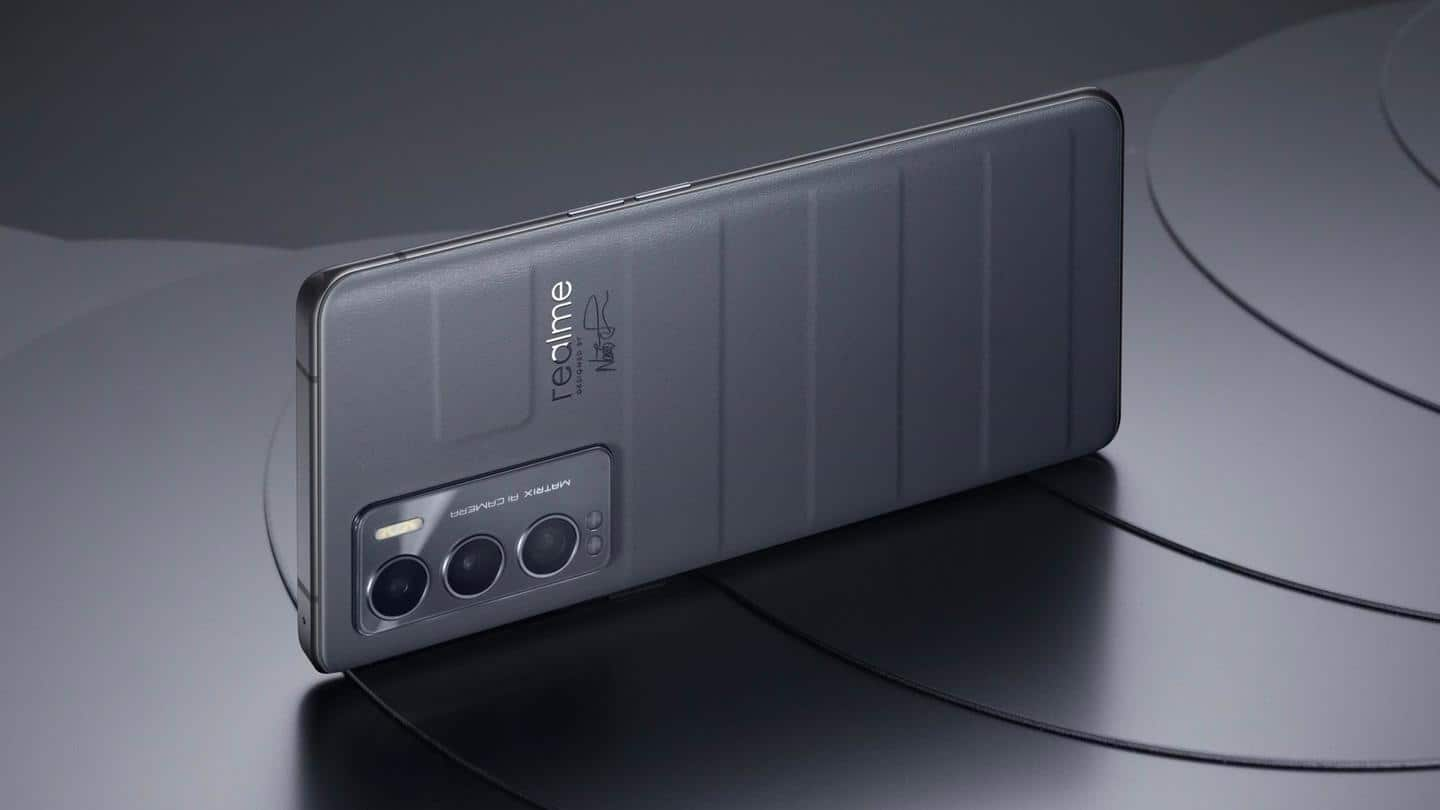
Realme GT Master Edition series, with suitcase-inspired design, launched
What's the story
As an addition to its GT series, Realme has launched the GT Master Edition and GT Explorer Master Edition smartphones in China.
The line-up starts at CNY 2,399 (roughly Rs. 28,000) and will go on sale starting today.
Designed by Naoto Fukasawa, the handsets offer a 3D sculpted suitcase-like vegan leather back panel along with a 120Hz AMOLED display and 65W fast-charging support.
Design and display
The phones flaunt a Super AMOLED display
The Realme GT Master Edition and GT Explorer Master Edition feature a punch-hole design with slim bezels and an in-display fingerprint sensor.
The former bears a 6.43-inch Super AMOLED screen with a Full-HD+ resolution and a 360Hz touch sampling rate. The latter has a 6.55-inch Full-HD+ Super AMOLED display.
Both offer a 120Hz screen refresh rate and up to 1,100-nits of peak brightness.
Cameras
They have a 32MP selfie camera
The Realme GT Master Edition sports a triple rear camera unit comprising a 64MP main sensor, an 8MP ultra-wide lens, and a 2MP macro snapper.
The GT Explorer Master Edition is equipped with a 50MP primary snapper, a 16MP ultra-wide lens, and a 2MP macro sensor.
For selfies and video calling, both the phones have a 32MP front-facing camera.
Internals
They boot Realme UI 2.0 based on Android 11
The Realme GT Master Edition and GT Explorer Master Edition are powered by a Snapdragon 778G and Snapdragon 870 chipset, respectively, paired with up to 12GB of RAM and up to 256GB of storage.
The former packs a 4,300mAh battery, whereas the latter houses a 4,500mAh battery.
The duo offers support for 65W fast-charging and boot Android 11-based Realme UI 2.0.
Pocket-pinch
How much do they cost?
The Realme GT Master Edition is priced at CNY 2,399 (roughly Rs. 28,000) for the 8GB/128GB model and CNY 2,599 (around Rs. 30,000) for the 8GB/256GB version.
The GT Explorer Master Edition costs CNY 2,899 (approximately Rs. 33,400) for the 8GB/128GB variant and CNY 3,199 (roughly Rs. 37,000) for the 12GB/256GB configuration.
The phones are expected to be launched in India later this year.